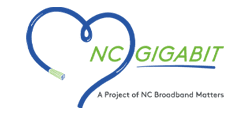The current pandemic highlights the critical nature of access to modern broadband, and yet too many residents and students have none, and find themselves driving to find a static school bus wired for internet or a library parking lot so they can complete their homework or apply for a job. How did we get here? Chris Mitchell from the Institute of Local Self Reliance interviews Jack Cozort, Government Relations specialist with North State Strategies and Catharine Rice, co-founder of NC Broadband Matters, for some insights into the making of H129, legislation passed in 2011 that effectively prohibits local communities –still 9 years later –from provisioning internet to their residents and businesses. In Part 1, Jack and Catharine remind the listener that prior to 2006, local NC communities had local cable franchising authority which they could utilize to require cable operators to deploy these information pipelines to local homes, and how the cable and telephone industry lobbied their way to monopoly status and abandoning under-served communities in North Carolina.

